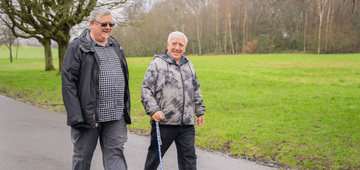New research reveals “Like” button is one of most “toxic” elements for social media users. Participants stand to gain over 100 hours of their lives back by going Cold Turkey this Scroll Free September, in the second annual social media awareness month hosted by RSPH.
From the 1 September 2019, the public will be encouraged to take a break from personal social media accounts in a bid to build a balanced, positive and meaningful relationship with platforms.
To coincide with this weekend’s launch of Scroll Free September, RSPH has commissioned new research which reveals what the public believe are the most toxic and meaningful elements of social media.
The most “toxic” elements of social media, as ranked by the public, included (from most to least):
- Triggering content (content that reminds you of a negative experience)
- The ‘like’ button
- Push notifications
- Fear of Missing Out (FOMO)
- Pressure from celebrities and influencers
The most “meaningful” elements of social media, as ranked by the public, were (from most to least):
- Memes
- Holding organisations and public figures to account
- Access to health information (including mental health advice)
- Accesses to resources for study and learning
- Understanding more about other cultures and societies
There were a number of differences across age and gender as to which elements were the most toxic:
- Almost one quarter (24%) of 18-24s see the most toxic element to be push notifications.
- Men are three times as likely as women to find FoMO (Fear of Missing Out) the most toxic part of social media (10% compared to 3%).
- Bullying is the most toxic element of social media for almost one in three 16-17 year olds (31%).
The 2018 campaign met huge success, with a survey of participants finding:
- Almost all (99%) would recommend taking part in Scroll Free September to a friend, with 96% agreeing taking part it improved their relationship with social media;
- Over three quarters (77%) said participating improved their mental health and almost two thirds (63%) said it improved their awareness of the world around them; and,
- Over half (58%) said taking part improved their quality of sleep.
This year’s campaign, Supported by Silentnight, BeGambleAware’s Bet Regret campaign and leading audiobook provider, Audible, follows the publication of the RPSH and APPG on Social Media’s report, #NewFilters. Based on the group’s parliamentary inquiry, the report found that although social media can have a range of positive effects: providing a platform for self-expression, enhancing social connections, and supporting learning, evidence suggested social media may be best used in moderation, with the report also revealing:
- Children who spend more than three hours a day using social media are twice as likely to display symptoms of mental ill health, and;
- Pressure to conform to beauty standards perpetuated and praised online can encourage harmful behaviours to achieve “results”, including disordered eating and body shame.
Scroll Free September provides an opportunity for users to take a break from social media and online gambling platforms, to build a meaningful, more balanced relationship which lasts into the future – a relationship where use is conscious and mindful, and where the user is the one in control.



